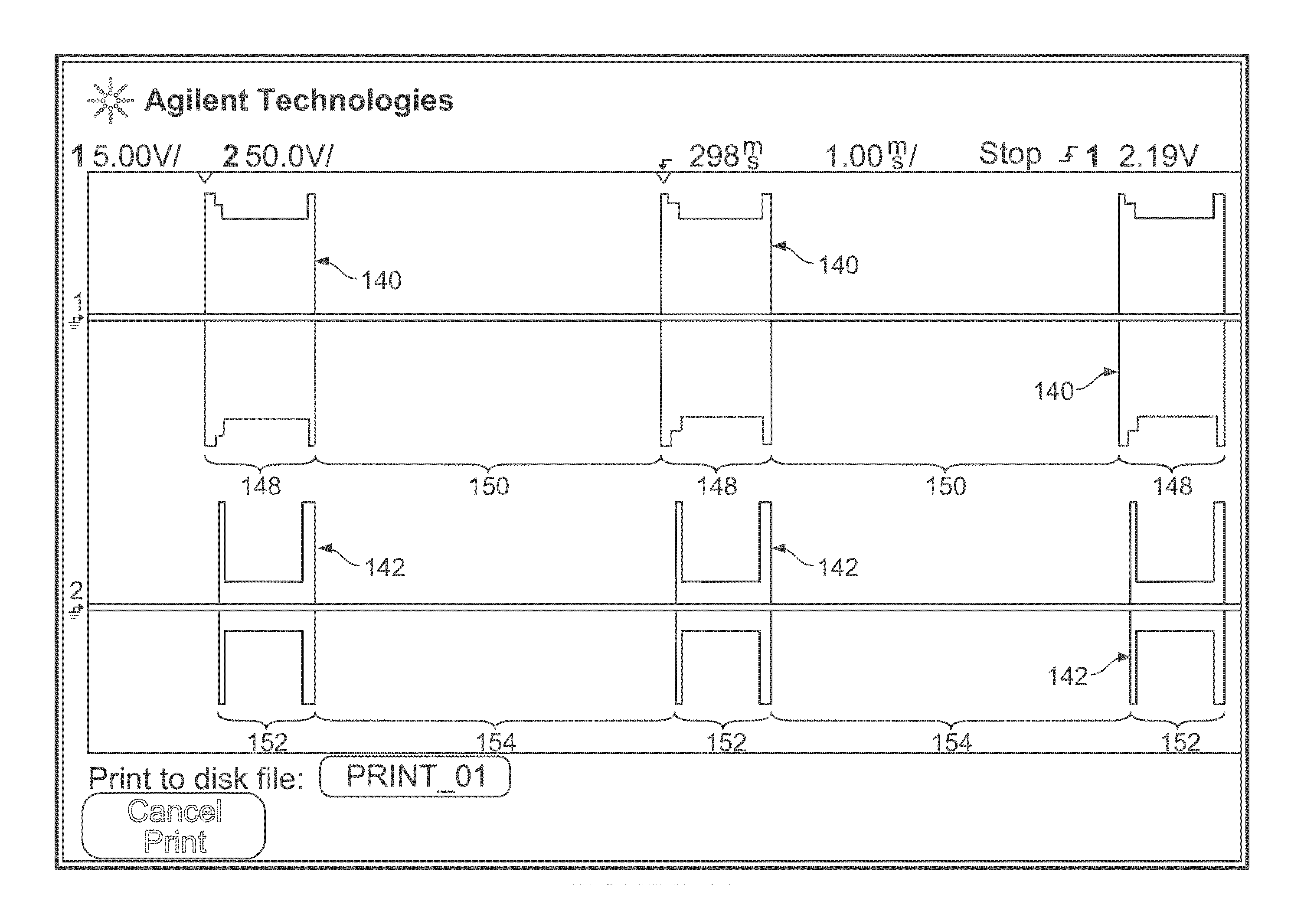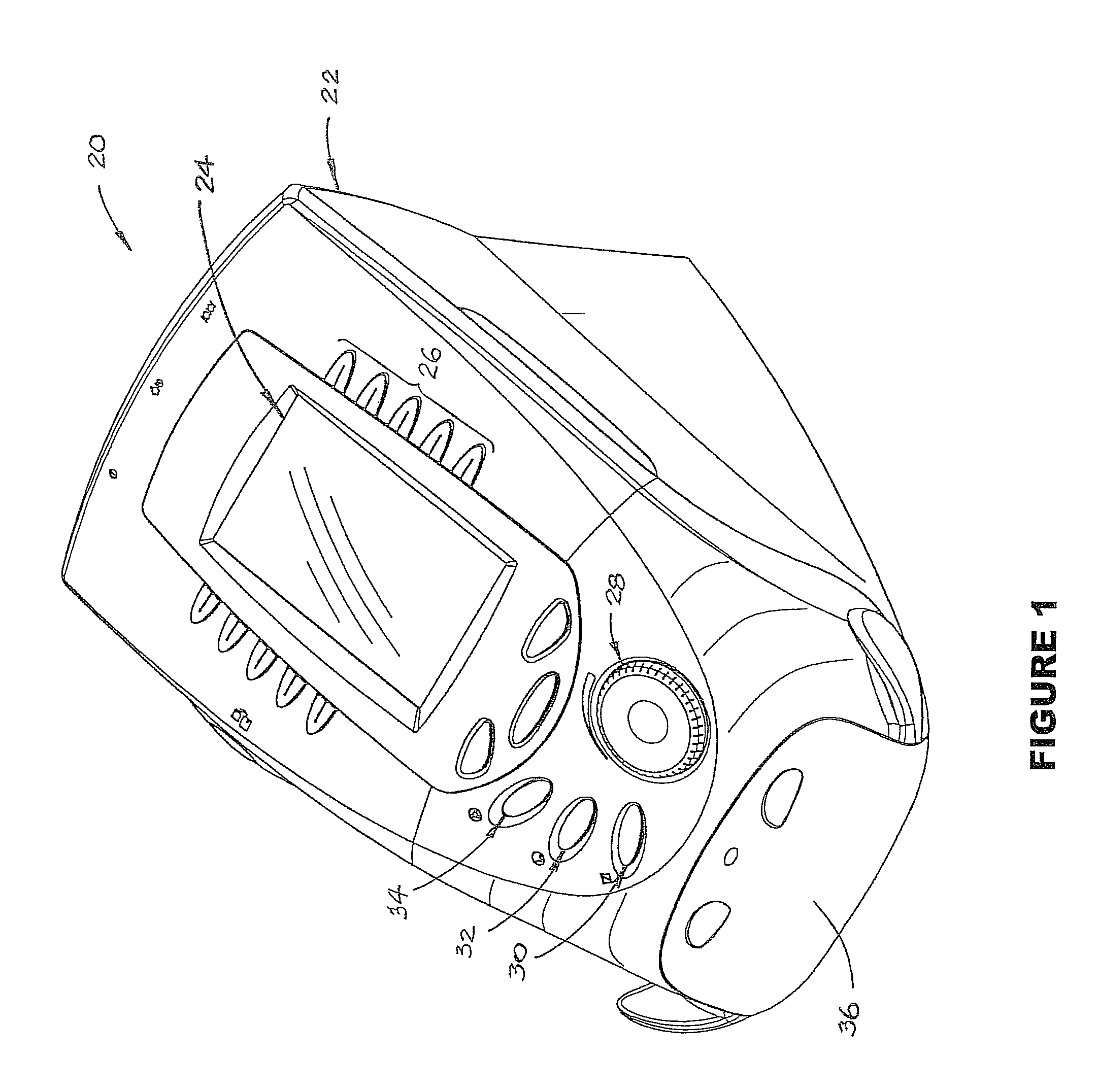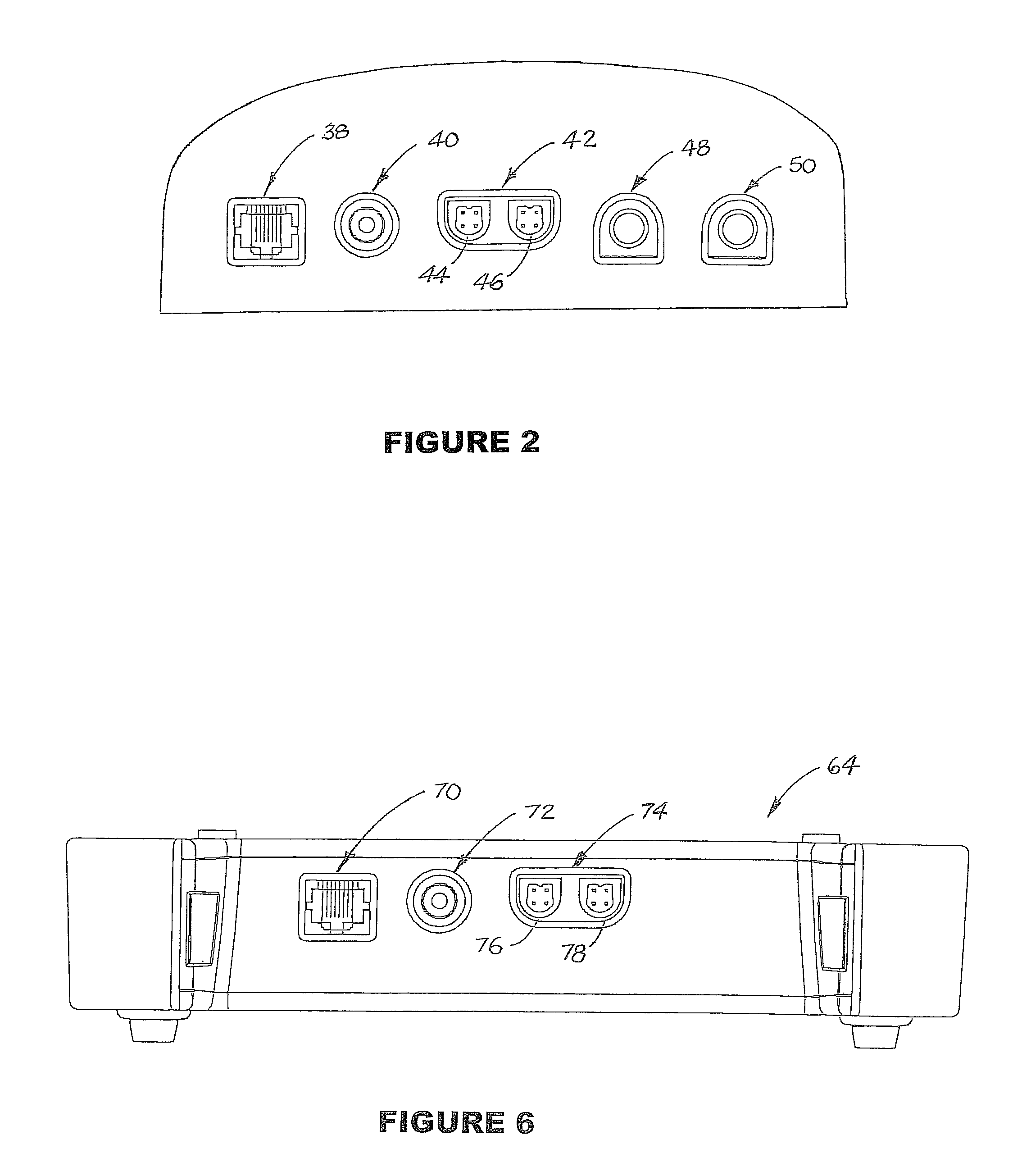Method and apparatus for applying neuromuscular electrical stimulation
a neuromuscular and electrical stimulation technology, applied in the field of neuromuscular electrical stimulation, can solve problems such as inacceptable pain, achieve the effects of facilitating understanding of invention, reducing acceleration of limbs, and regulating limb movemen
- Summary
- Abstract
- Description
- Claims
- Application Information
AI Technical Summary
Benefits of technology
Problems solved by technology
Method used
Image
Examples
Embodiment Construction
[0031]FIGS. 1-4 illustrate a preferred embodiment of a device for generating neuromuscular electrical stimulation for inducing muscle contraction in flexing or abducting a limb at a joint. As shown therein, device 20 comprises the main component of a modular system for providing the therapeutic application of energy in multiple forms. Device 20 comprises a combination two-channel electrotherapy and ultrasound system, which includes cabinet 22 having display screen 24. Device 20 also includes a user interface in the form of function keys 26 (including keys on both sides of the display screen), which form a part of the interactive interface of the device. Other function keys include knob 28 which provides therapy “Intensity Control” and button 30, which is a therapy session “Start” key. Button 32 is a therapy session “Pause” key and button 34 is a therapy session “Stop” key. Front access panel 36 provides access to a plurality of outlet jacks (shown in FIG. 2), including operator remo...
PUM
 Login to View More
Login to View More Abstract
Description
Claims
Application Information
 Login to View More
Login to View More - R&D
- Intellectual Property
- Life Sciences
- Materials
- Tech Scout
- Unparalleled Data Quality
- Higher Quality Content
- 60% Fewer Hallucinations
Browse by: Latest US Patents, China's latest patents, Technical Efficacy Thesaurus, Application Domain, Technology Topic, Popular Technical Reports.
© 2025 PatSnap. All rights reserved.Legal|Privacy policy|Modern Slavery Act Transparency Statement|Sitemap|About US| Contact US: help@patsnap.com



